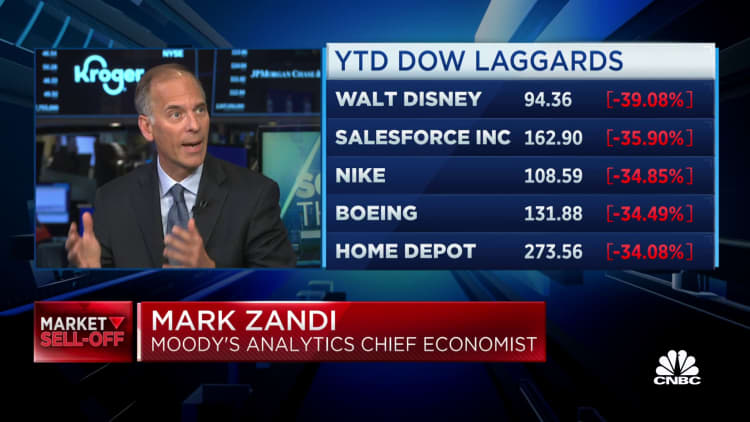Despite recession fears and headlines about layoffs, there's no sign of trouble yet in the overall job market. Openings are still near all-time highs, and unemployment claims remain low.
That means job seekers have the upper hand as employers look to attract talent, according to career experts.
"No one should feel paralyzed by the sense of impending doom that is shifting here every few days," said Shayla Thurlow, vice president of people and talent acquisition at career website The Muse.
More from Invest in You:
Suze Orman has a warning about Great Resignation resignations
These are the 10 fastest-growing entry-level jobs
Before you start investing, here's what experts want you to know
While surveys have shown workers are looking for flexibility, good benefits and work/life balance, compensation is also important. Yet new graduates are underestimating their salaries by about $10,000, a ZipRecruiter survey of 1,500 job seekers found.
The median annual earnings of full-time workers with bachelor's degrees, ages 25-34, was $55,700 in 2019, according to the career website's analysis. Yet when new graduates were asked by ZipRecruiter how much they would need to be paid to accept a job, the answer was $45,900.
Job market has shifted grads' salary expectations
The swift changes in the job market are the likely reason young adults are underestimating their worth.
"We went from a total deep freeze in the labor market in 2020," said Julia Pollak, ZipRecruiter's chief economist.
"That shock rippled through colleges and made everyone kind of terrified," she added. "Then things turned around very, very quickly."

The findings are in opposition to a survey by Real Estate Witch in March that showed college students were wildly overestimating their salary potential, with expectations they'd earn $103,880 in their first job.
Pollak chalks that up to the way the questions were framed — what you expect or hope to make versus what you need to be offered to accept a job.
"It's a more conservative way of asking the question and causes people not to think about their pie in the sky, sort of wildest dream or expectation," she said.
Arm yourself with information for salary conversations
Whether you are overestimating your worth or underestimating it, the advice is the same: Do the research to understand salary ranges in your given field.
Market data is readily available on websites like Payscale, Salary.com, Glassdoor and ZipRecruiter.
Colleges and universities also provided surveys about salaries, Thurlow said.
When speaking with recruiters, have upfront conversations about compensation.
"As you're talking to someone, ask what the budget is for the role to make sure it is in line with your expectations," Thurlow said.

By doing your research ahead of time, you should have a sense of where the job falls — and it also puts you in a position to negotiate.
"Most employers set the pay in a role, assuming that some portion of candidates are going to try to negotiate for more, so there often is wiggle room," Pollak said.
If you can't negotiate more pay, you can also see if there is something else the employer can offer, such as more vacation time, the ability to work remotely or training, she said.
"The funny thing about negotiating for more pay is that often companies actually are impressed by it," Pollak noted.
"It shows that you are confident in your abilities, that you have other options."
SIGN UP: Money 101 is an 8-week learning course to financial freedom, delivered weekly to your inbox. For the Spanish version Dinero 101, click here.
Disclosure: NBCUniversal and Comcast Ventures are investors in Acorns.






